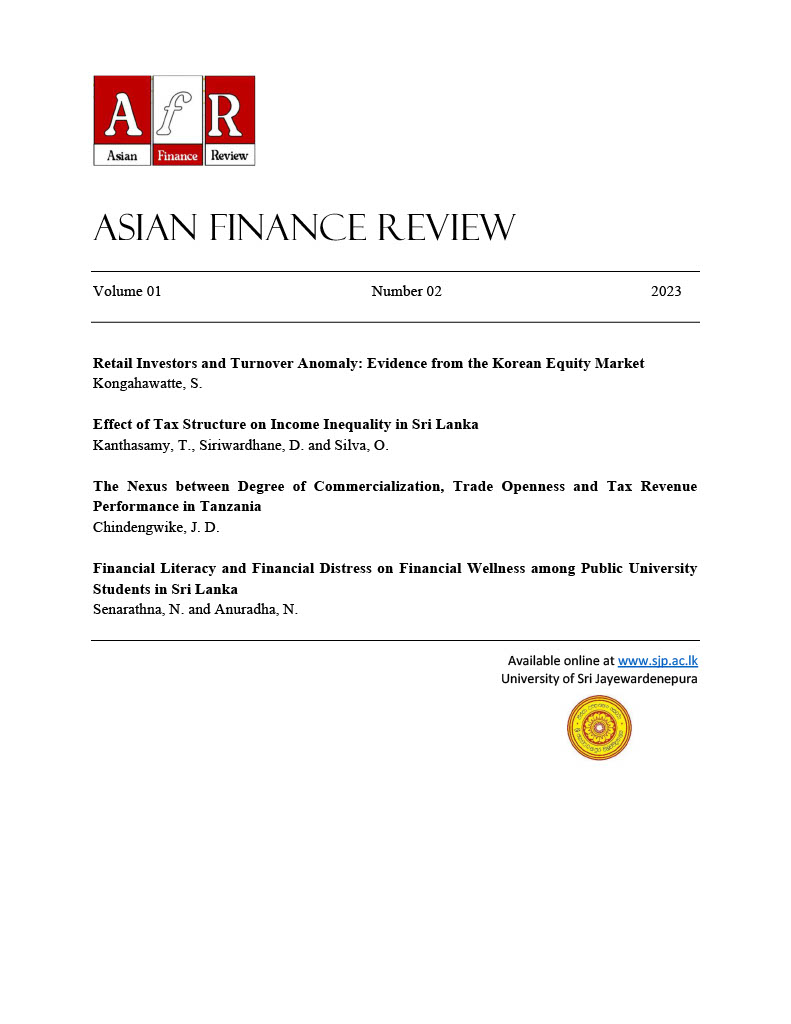Financial Literacy and Financial Distress on Financial Wellness among Public University Students in Sri Lanka
DOI:
https://doi.org/10.31357/afr.v1i2.6915Keywords:
Financial Literacy, Financial Distress, Financial Wellness, Personal Finance, Financial Behavior, Sri LankaAbstract
Sri Lanka is currently grappling with its most severe economic crisis, marked by a scarcity of foreign currency, impending debt payments, inflation, and shortages in essential goods. The crisis has disproportionately affected the younger generation, impacting their education and businesses. Public university students, in particular, face challenges with rising costs of living and educational materials. This study aims to investigate the influence of financial literacy and financial distress on the financial wellness of public university students in Sri Lanka. While existing literature abroad explores these factors, there is a research gap in understanding their combined impact on financial wellness in the Sri Lankan context. The theoretical framework incorporates Prospect Theory, Behavioral Life-Cycle Theory, and Self-Efficacy Theory. Primary data collection involved survey questionnaires distributed randomly among Sri Lankan public university students, with 122 responses analyzed using EVIEWS and Excel. The results indicate a strong positive relationship between financial literacy and financial wellness, highlighting the positive impact of financial knowledge on overall financial well-being. Conversely, while there is a negative relationship between financial distress and financial wellness, it is not statistically significant. However, when considering the combined effect, there is a significant impact of both financial literacy and financial distress on financial wellness. Overall, the study reveals that public university students in Sri Lanka exhibit higher financial literacy and effective financial management, contributing to their resilience during the economic crisis. The findings emphasize the importance of addressing both financial literacy and distress for comprehensive financial wellness among this demographic.



